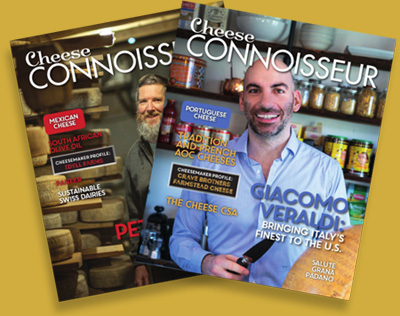The world is going tariff crazy! President Trump put tariffs on China, and they respond in kind. Recently, the news is filled with the decision to impose tariffs on Mexican tomatoes while “dumping” charges are investigated. In the background, the U.S. has won a World Trade Organization action declaring that Europe has been subsidizing large civilian aircraft and that these subsidies have had an adverse impact on the U.S. aircraft industry.
Under WTO rules, the U.S. can impose tariffs on goods from the European Union. The value of goods that could be hit with tariffs is currently under arbitration at the WTO, but the U.S. estimates more than $11 billion worth of imports could be hit annually, and the WTO has issued an initial list, including sacré bleu, Cheddar, Roquefort, Gruyère, Pecorino and other cheeses.
Now tariffs are always bad for consumers. They function as a tax on the imported product and so raise the cost to consumers. But whereas many of President Trump’s tariffs have depended on questionable loopholes in global trade agreements—like imposing tariffs on European steel by exercising rarely used national security exceptions to global trade rules—this is legitimate under WTO rules. Yet, tariffs raise costs and restrict choice.
Of course, there are always options for cheese consumers, including a growing panoply of American specialty cheese. But the world is better if producers gain their market share by competing to offer superior products, better service and good pricing. Tariff walls encourage domestic producers to get complacent—which they often regret when the tariff walls come tumbling down.
In any case, it is hard to worry about all this when one is trying to assemble a decent cheese plate. John Adams famously explained his purpose and aspiration:
“I must study politics and war, that our sons may have liberty to study mathematics and philosophy. Our sons ought to study mathematics and philosophy, geography, natural history and naval architecture, navigation, commerce and agriculture in order to give their children a right to study painting, poetry, music, architecture, statuary, tapestry and porcelain.”
History has shown Adams to be too optimistic. We still need to study politics and war. But we can do so while also studying mathematics and philosophy and, indeed, we can paint, listen to music and nibble on some wonderful specialty cheese from wherever we can get it



